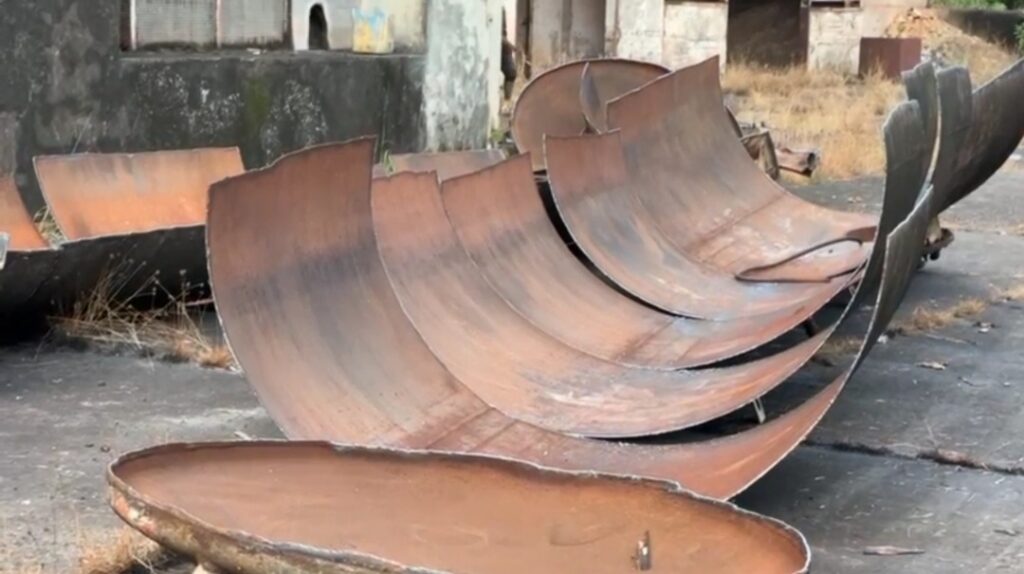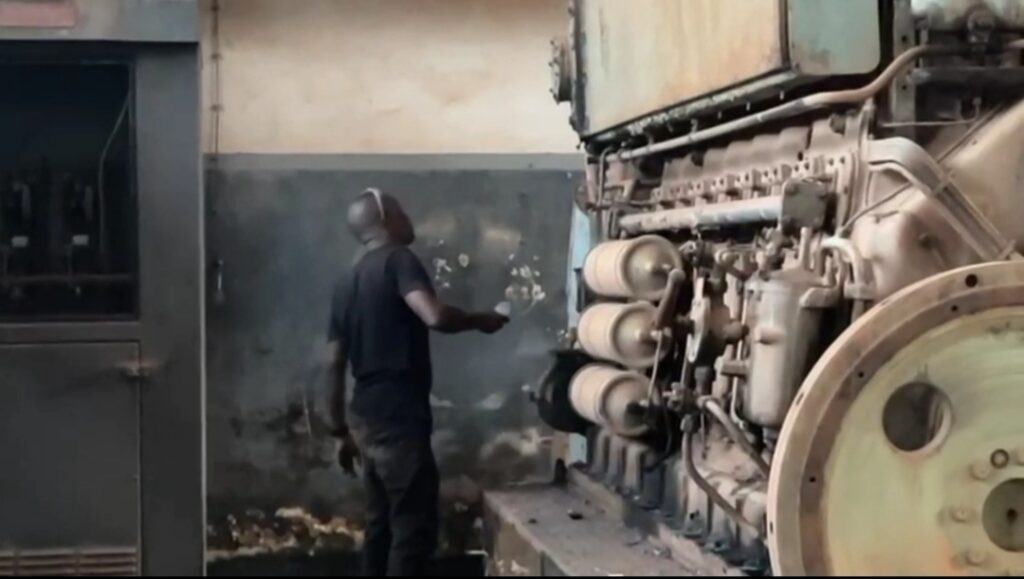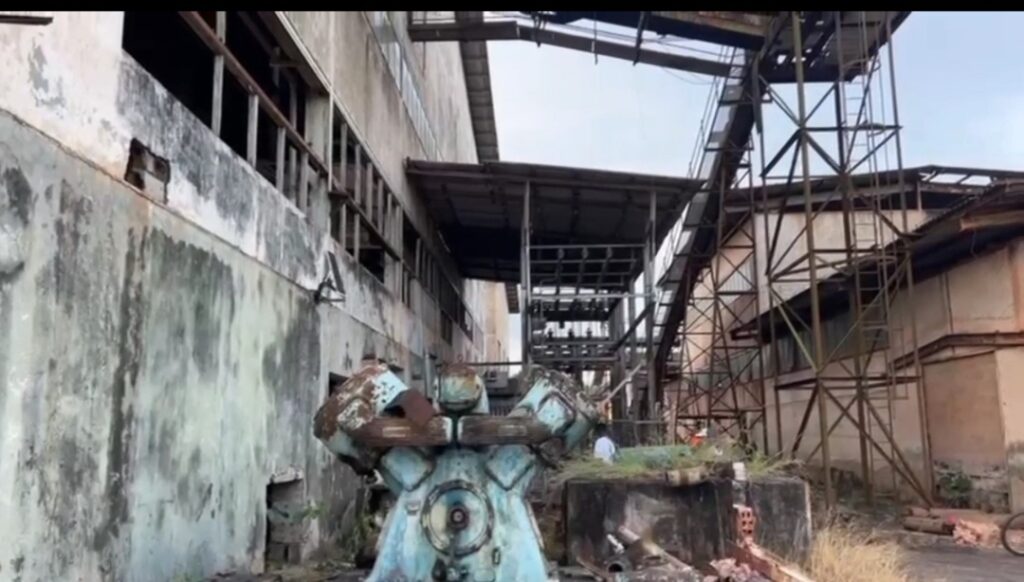In a powerful display of unity and determination, the Chief and residents of Aboso in the Prestea Huni Valley Municipality of the Western Region has successfully halted an attempt by Maxwell Kofi Jumah, Managing Director of GIHOC Distilleries Company Limited, to dismantle and sell the historic Aboso Glass Factory as scrap to Linkin Birds Company.
Founded in 1966 by Ghana’s first president, Dr. Kwame Nkrumah, the Aboso Glass Factory, located near Tarkwa in the Western Region was once a symbol of industrial self-sufficiency in Ghana.
The factory at its peak employed around 500 people and produced millions of glass bottles, tableware, and sheet glass annually, serving the country’s beverage and glassware industries.
However, financial constraints and operational difficulties eventually led to the factory’s collapse and renaming as Tropical Glass Factory under the management of Mr. Gilchrist Olympio.
In 2003, the factory was listed for divestiture after the Electricity Company of Ghana (ECG) cut off its power supply. In 2017, the government announced plans to rehabilitate the factory with investor support, and in 2019, GIHOC Distilleries took over with an ambitious plan to reduce reliance on imported glass and support GIHOC’s own brands, including Castle Bridge, Kaiser, and Schnapps.
Despite these revival plans, the community was shocked when a letter surfaced, signed by Maxwell Kofi Jumah on September 27, 2-24 authorizing Linkin Birds Company to access the site and collect scrap materials.
Community members who were alarmed by this move, joined by a news team, conducted a site visit where they witnessed workers cutting down metal pillars and draining oil from transformers, indicating significant dismantling activities.
A resident, Abdullah Idriusu explained that the transformer was operational at the time the factory folded, emphasizing the factory’s potential if restored rather than getting dismantled.
The discovery led to a heated confrontation between local youth and company workers which nearly resulted in a physical altercation as the youth demanded that the dismantling be stopped.
According to Kwasi Kabila, a local unit committee member, the community had made it clear in a recent stakeholders’ meeting that they would not allow any scrap to be removed unless they saw tangible steps toward restoring the facility.
Further site inspections revealed even more disturbing signs of dismantling, with electrical cables connected to machinery being removed. Concerned by these activities, the youth reported their findings to Chief of Aboso, Nana Kwasi Appiah II, who later led a team of community members back to the factory.
Nana Appiah II shared that during stakeholder discussions, the community had reached an understanding with Linkin Birds Company, outlining specific terms to prevent unauthorized actions, yet these recent activities suggested the terms were being violated.
In an effort to gather wider insights, the news team also engaged Nana Akwasi Somprey II, Chief of Bogoso, who discussed the Wassa Fiase Traditional Council’s interest in preserving the Aboso Glass Factory.
Nana Somprey emphasized the factory’s historical significance and its potential for job creation if fully restored, underscoring the council’s commitment to protecting this heritage site from being dismantled.
With its rich industrial legacy, the Aboso Glass Factory represents a unique opportunity for the community and the nation.
For many residents, preserving the factory isn’t only about saving an old building but about restoring a source of pride, economic opportunity, and local heritage.
Nana Kwasi Appiah II and other community leaders continue to urge the government to fulfill its promise to rehabilitate the factory, as opposed to allowing its valuable assets to be scrapped.
The community remains resolute in their stand, determined to protect the factory for future generations and support Ghana’s vision of industrial self-sufficiency.





